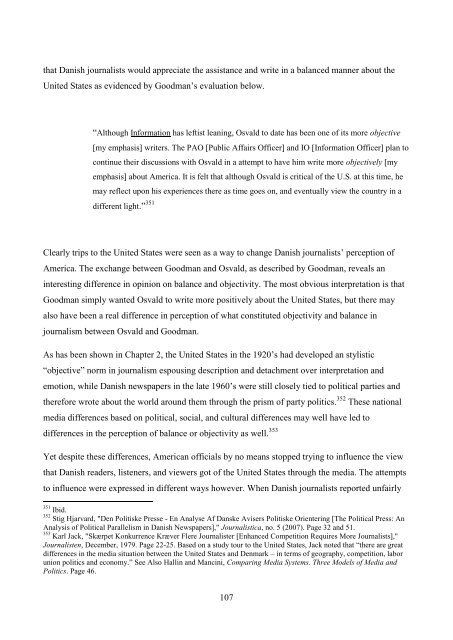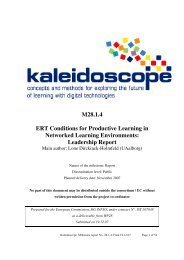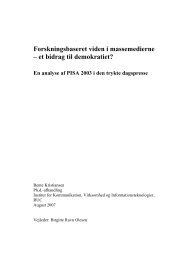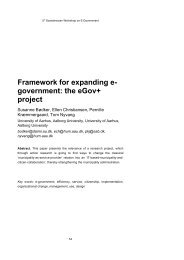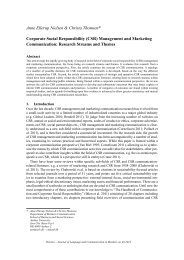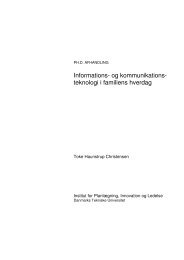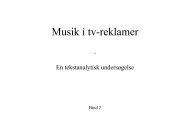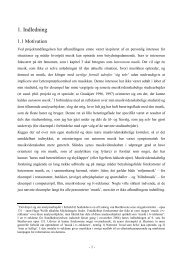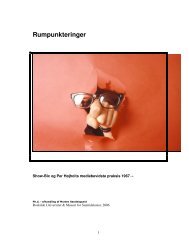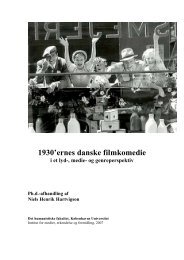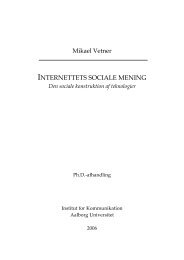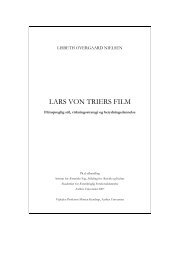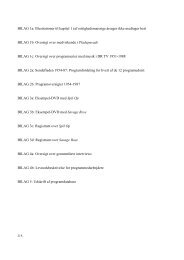The Jeremiad Over Journalism
The Jeremiad Over Journalism
The Jeremiad Over Journalism
Create successful ePaper yourself
Turn your PDF publications into a flip-book with our unique Google optimized e-Paper software.
that Danish journalists would appreciate the assistance and write in a balanced manner about the<br />
United States as evidenced by Goodman‘s evaluation below.<br />
―Although Information has leftist leaning, Osvald to date has been one of its more objective<br />
[my emphasis] writers. <strong>The</strong> PAO [Public Affairs Officer] and IO [Information Officer] plan to<br />
continue their discussions with Osvald in a attempt to have him write more objectively [my<br />
emphasis] about America. It is felt that although Osvald is critical of the U.S. at this time, he<br />
may reflect upon his experiences there as time goes on, and eventually view the country in a<br />
different light.‖ 351<br />
Clearly trips to the United States were seen as a way to change Danish journalists‘ perception of<br />
America. <strong>The</strong> exchange between Goodman and Osvald, as described by Goodman, reveals an<br />
interesting difference in opinion on balance and objectivity. <strong>The</strong> most obvious interpretation is that<br />
Goodman simply wanted Osvald to write more positively about the United States, but there may<br />
also have been a real difference in perception of what constituted objectivity and balance in<br />
journalism between Osvald and Goodman.<br />
As has been shown in Chapter 2, the United States in the 1920‘s had developed an stylistic<br />
―objective‖ norm in journalism espousing description and detachment over interpretation and<br />
emotion, while Danish newspapers in the late 1960‘s were still closely tied to political parties and<br />
therefore wrote about the world around them through the prism of party politics. 352 <strong>The</strong>se national<br />
media differences based on political, social, and cultural differences may well have led to<br />
differences in the perception of balance or objectivity as well. 353<br />
Yet despite these differences, American officials by no means stopped trying to influence the view<br />
that Danish readers, listeners, and viewers got of the United States through the media. <strong>The</strong> attempts<br />
to influence were expressed in different ways however. When Danish journalists reported unfairly<br />
351 Ibid.<br />
352 Stig Hjarvard, "Den Politiske Presse - En Analyse Af Danske Avisers Politiske Orientering [<strong>The</strong> Political Press: An<br />
Analysis of Political Parallelism in Danish Newspapers]," Journalistica, no. 5 (2007). Page 32 and 51.<br />
353 Karl Jack, "Skærpet Konkurrence Kræver Flere Journalister [Enhanced Competition Requires More Journalists],"<br />
Journalisten, December, 1979. Page 22-25. Based on a study tour to the United States, Jack noted that ―there are great<br />
differences in the media situation between the United States and Denmark – in terms of geography, competition, labor<br />
union politics and economy.‖ See Also Hallin and Mancini, Comparing Media Systems. Three Models of Media and<br />
Politics. Page 46.<br />
107


